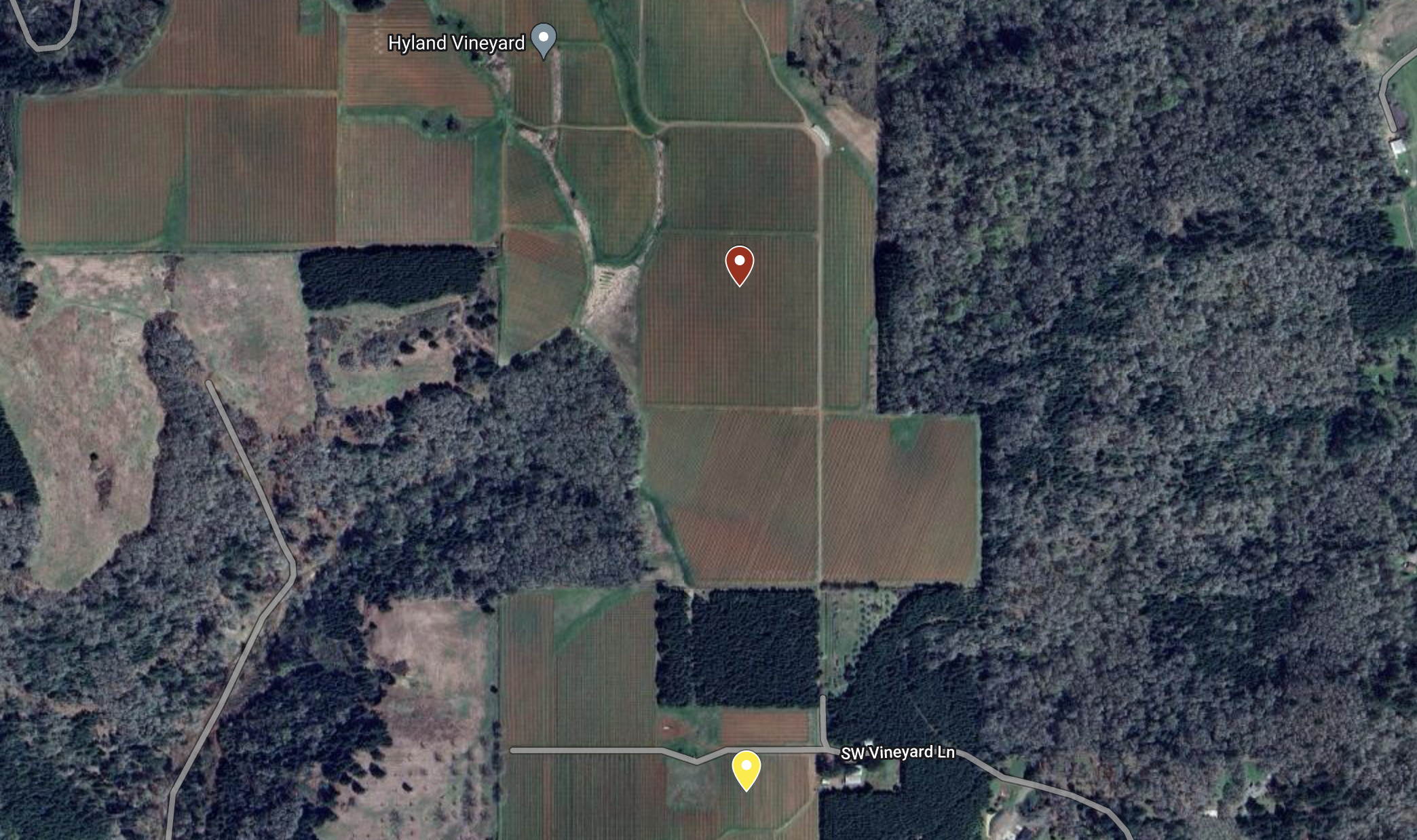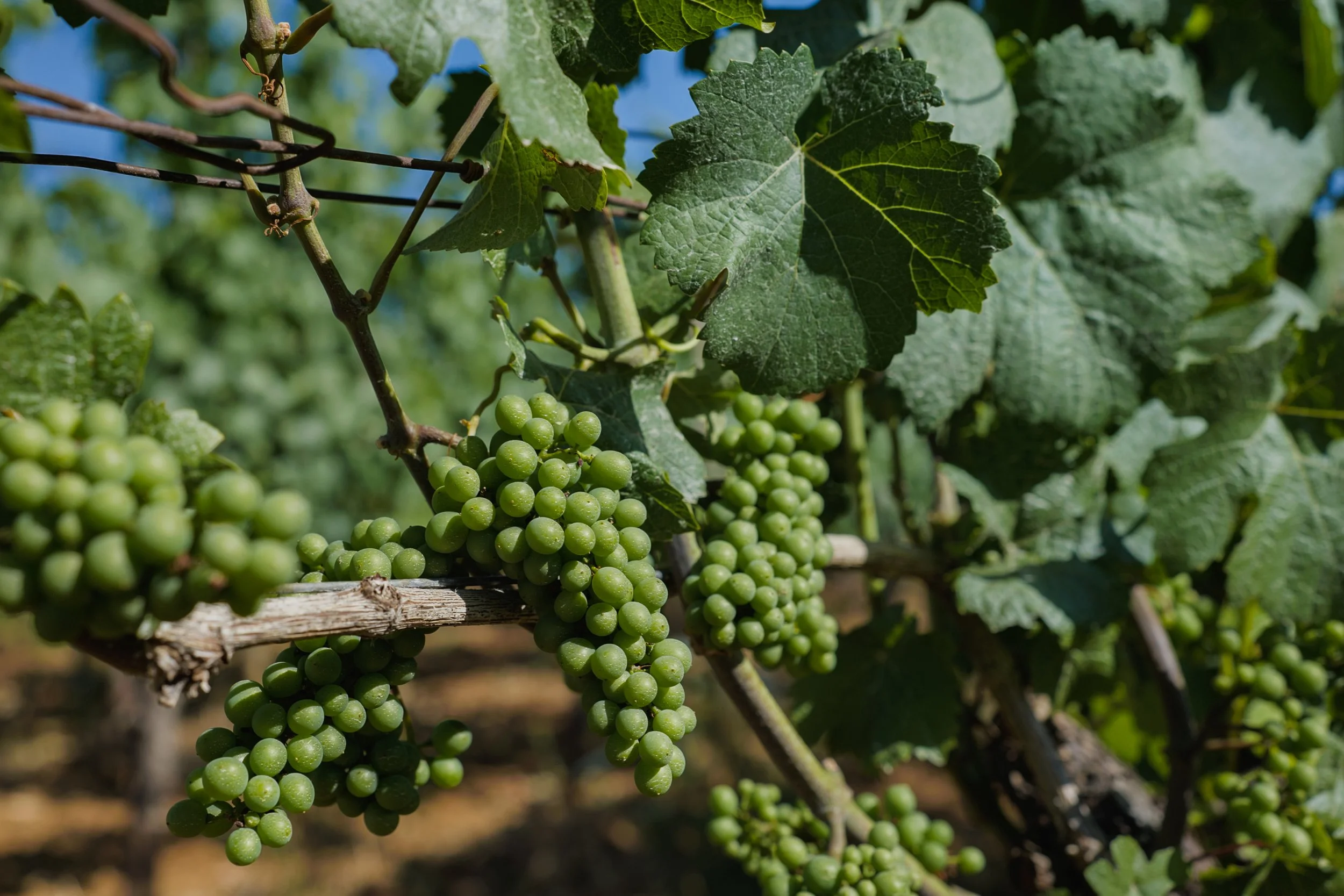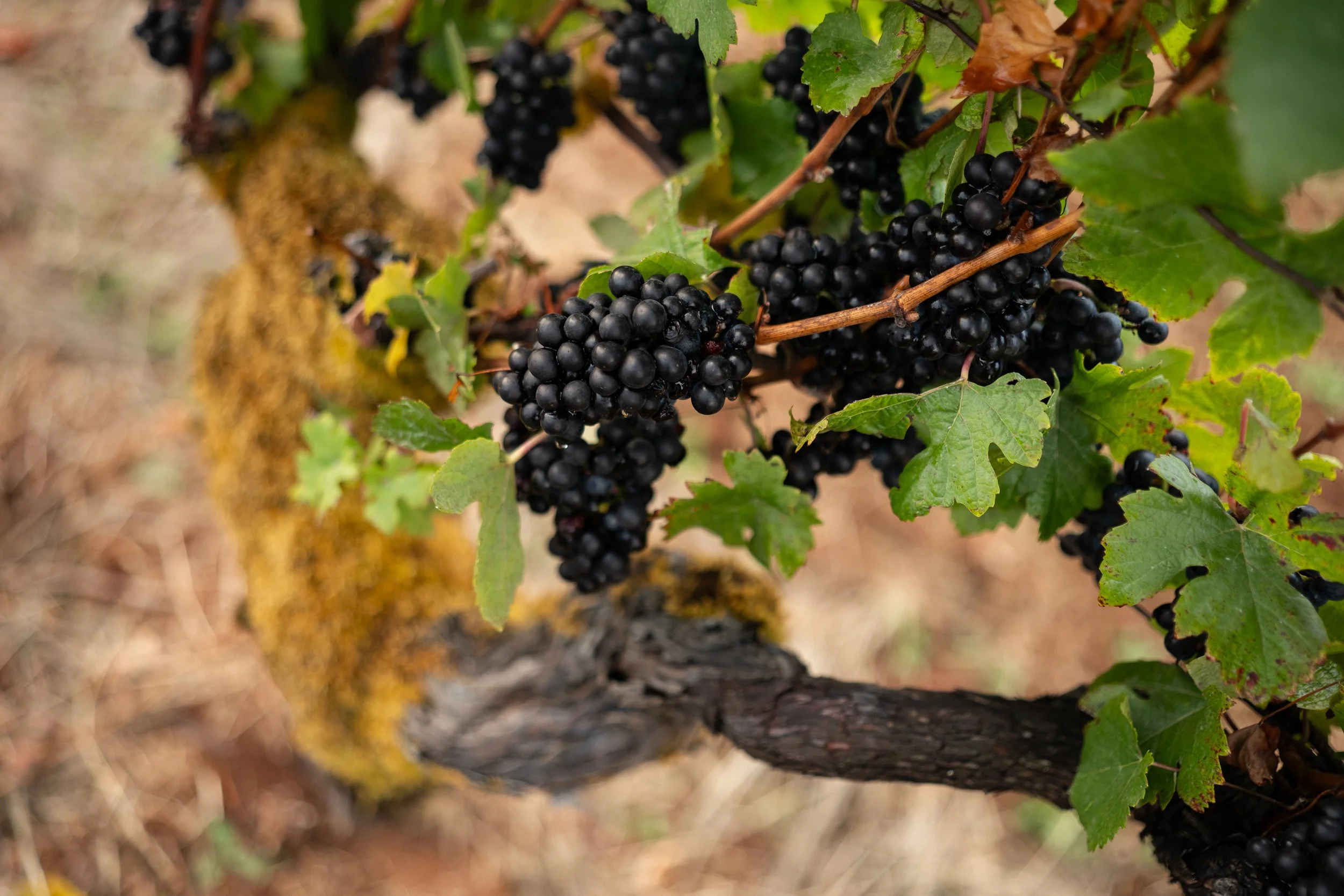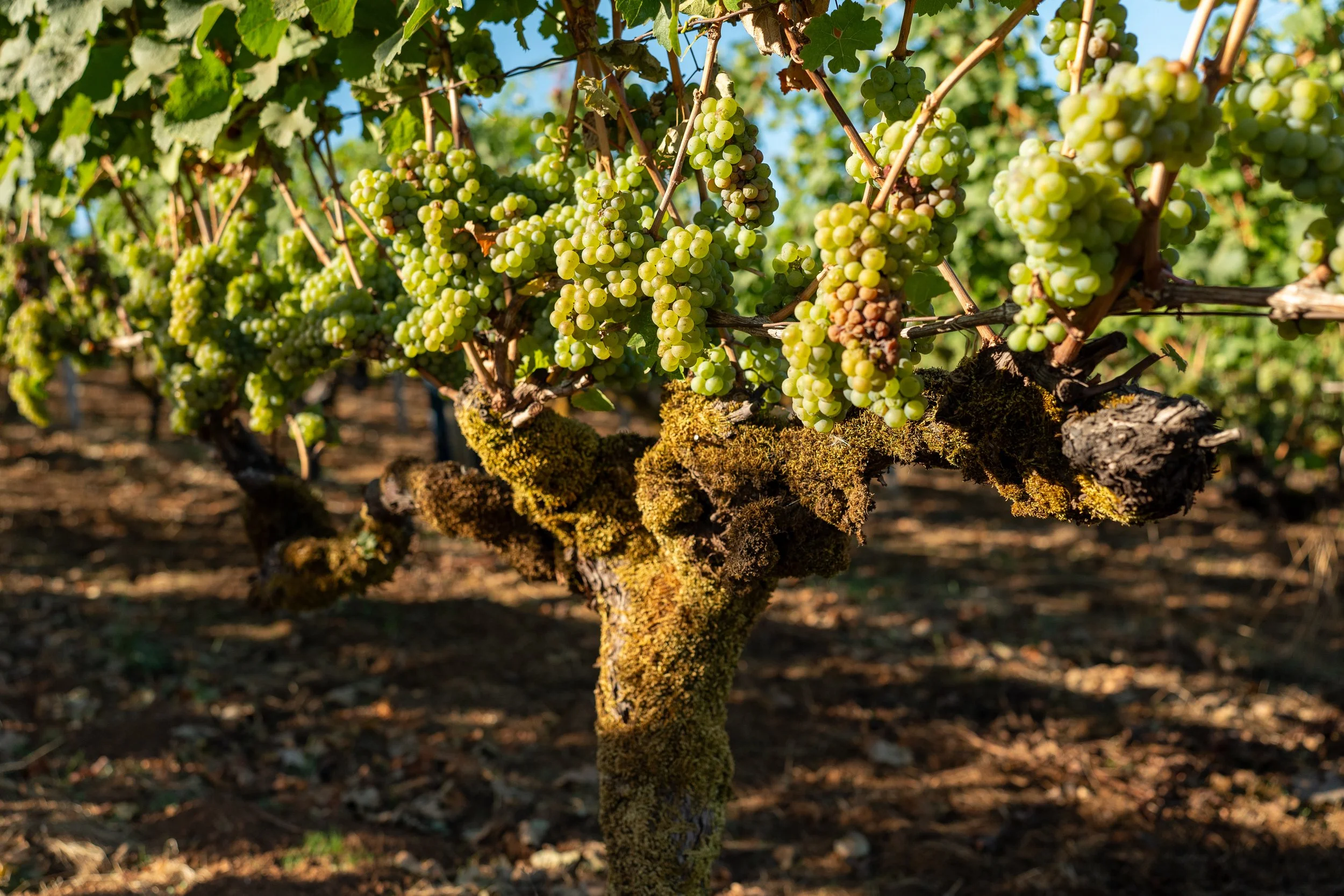
Hyland
Hyland Vineyard
McMinnville AVA - Willamette Valley
Located just minutes from Martin Woods Winery—Hyland Vineyard spans over 200 acres, with approximately 185 acres under vine, making it one of Oregon's most historic and expansive vineyards. Hyland is situated on the northern shoulder of the Van Duzer gap, the "air-conditioning" pathway through the Coast Range where marine air enters from the ocean and cools the Willamette Valley. Persistent wind spills over this neighborhood, moderating temperatures and allowing for patient ripening and retention of fresh acidity. The vines at Hyland thrive in volcanic Jory soil
Founder and Winemaker Evan Martin stands at the top of Hyland in this video during the pick of the 2024 Riesling to discuss the magic of the vineyard and our beloved block, 1G North.
The Terroir
1G North - Riesling
AVA: McMinnville
Elevation, Aspect: 625 feet, low angle north slope
Soil: Jory series (weathered volcanic basalt)
Vine Age: Planted 1973, self-rooted (ungrafted)
Clonal Selection: "Coury" selection massale (1960's suitcase import from Alsace)
Farming: Dry-Farmed, Organic management
Block 7A/7B - Pinot Noir
AVA: McMinnville
Elevation: 600 feet
Soil: Volcanic Jory Soil
Vine Age: Planted 1989, self-rooted (undrafted)
Clonal Selection: Coury selection (massale from Alsace) & Dijon 115
Farming: Dry-Farmed, Organic management
Click on the map image below to launch the interactive vineyard map









